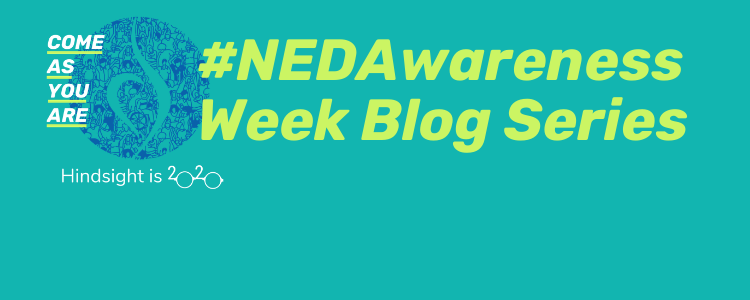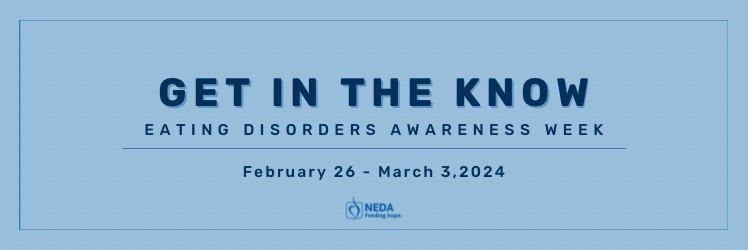If someone would’ve told me ten years ago that I would no longer be in pursuit of weight loss today, I wouldn’t have believed it.
Editor’s Note: CW for behaviors mentioned and discussion of weight loss
If someone would’ve told me ten years ago that I would no longer be in pursuit of weight loss today, I wouldn’t have believed it.
That’s because at that time I was still deeply entrenched in diet thinking, and weight loss was my number one priority. I was on a lifelong quest to find the thing that would permanently give me the body that I’d always wanted.
I thought I had found that special thing when, at the age of 36, I began training for fitness competitions. Once I signed up and got my first meal plan and workout schedule, I breathed a sigh of relief and thought, “Wow, this is it! This is what I’ve been looking for.” Up until that point I had spent the majority of my adolescent and adult life on countless diets hoping to shrink my body. I was striving to get to a size that the weight charts and fashion magazines told me I needed to be.
As silly as this sounds now, I thought that this would end of the vicious dieting cycle. I thought obsessing over my body would go away. I was convinced this was a healthy lifestyle change, and not a quick fix. In my mind, I was NOT dieting.
By all outward appearances, I was successful. I had reached the goals that seemed to elude me for so long. Naturally, I believed I was in position to help other women finally unlock the secret to losing weight without dieting just like I had (ha!), so I became a certified wellness coach. I did all the things that wellness coaches were doing at the time: I talked about clean eating, made Facebook posts using stock images of thin white women doing yoga, and used inspirational quotes to tie it all together. I used terms like “health goals” when what I really meant was weight loss. I encouraged people to ditch the diets while perpetuating the idea that fat was bad and needed to be fixed.
And I thought my non-diet, weight-management approach was exactly the fix they needed to begin “living their best life.”
What I didn’t realize at the time was that I was still hyper-focused on food, exercise, and the size of my body. My fundamental belief that the pursuit of health should be our number one priority—and to be healthy meant to be thin—was central in my life and my business.
But there was a little voice inside of me that spoke up and asked: “If this is the answer, why are you still worried about YOUR weight?”
It was this little voice that steered me into online spaces about body positivity and acceptance, and eventually to Health at Every Size (HAES)®. I could see that by selling weight loss, I was contributing to the pathologizing of bodies all in the name of health.
When I look back on those days, I cringe. I have spent years unlearning toxic messages about bodies (especially large bodies) and now I can see the harm I caused by perpetuating those messages. Unfortunately, it’s common practice in the health and wellness community to reinforce a narrow and privileged definition of “health.” I believe that what is currently being offered in many spaces dedicated to “healing” and ”health” are actually unhelpful at best, and dangerous at worst.
Although I can’t pinpoint the exact moment my beliefs began to shift, there were several pivotal moments and experiences that have brought me here. Like when I took Sonya Renee Taylor’s online class about radical self-love, or the first time I read Ragen Chastain’s blog “Dances With Fat,” or when I heard Hilary Kinavey and Dana Sturtevant from Be Nourished say “You can trust your body.” I’ve listened to countless interviews on Christy Harrison’s Food Psych podcast that challenged my entire belief system around food and bodies.
Now, I have a fundamental belief that we are all worthy and that no body is inherently more valuable than another.
In addition to the articles, podcasts, and conversations with people on a similar path, my own writing practice has awakened me in ways I never thought possible. I’ve used writing to process my thoughts and to hear my own voice above all the other voices telling me who to be.
Sometimes, I write to reflect on the evolution of my beliefs over time. These reflections have been both liberating and painful. It’s wonderful to look back and see my personal and professional growth. But it’s also frustrating when I leave the confines of the small social circles where other people “get it” and feel like I now have to defend my position. You realize quickly that the rest of the world is not heading in the same direction.
The beliefs we hold about bodies comes from years of programming through families, social circles, schooling, and the media. These ideas are so deeply planted into our minds that we don’t even notice it. The path to unravel these beliefs is long and winding.
So how do we undo a lifetime of brainwashing?
I believe we take it day by day; sometimes hour by hour. We have to look at the ways the truth has been hidden from us and challenge the ways we’ve been told we’re not good enough.
We must acknowledge the harm we’ve caused other people with our words and actions.
The process of unlearning involves confronting ourselves in ways that are liberating and validating, but also confusing and uncomfortable. It’s hard work, but it’s what we must do to untangle this mess from our minds, our bodies, and our lives. It’s up to us.
Melissa Toler is a writer and speaker. Her work encourages people to make the connection between our culture’s oppressive health and beauty standards and our personal struggle with self-acceptance. Her goal is to help people use expressive writing to unlearn harmful messages and behaviors from years of chronic dieting. Melissa also has a background as a pharmacist and certified wellness coach.






